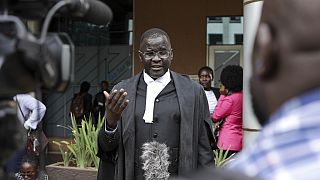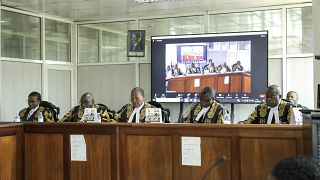Uganda
Uganda’s parliament on Wednesday approved a law that impses new taxes on social media services and mobile money transactions.
Critics of the Excise Duty (Amendment) Bill, 2018 had argued that taxing social media would amount to restrictions on freedoms of expression on the internet while taxing mobile money transactions would hurt low income earners who had found solace in the services, after mainstream banks failed to reach them with suitable services.
Government however argued that the needs of poor Ugandans had been considered and that the revenue collected from the new taxes would be used to provide services like ‘free education, free healthcare and free roads’ that are demanded by the citizenry.
‘‘We are putting that into the mind that’s why we are only increasing it by 1% not 2%. These people we are taxing need free medical care, education and all services,’‘ said Bahati David, the state finance minister in charge of planning.
The new taxes that take effect in the next financial year will see Ugandans pay a 1% tax on all mobile money transactions while they will also be charged 200 shillings ($0.027) for every day they access social networking sites like Facebook, Twitter and WhatsApp.
Opposition argues against ‘anti-poor’ taxes
Opposition politicians voiced their reservations on the benefits of taxing the poor, in the name of revenue collection. Many argued that government should instead focus on tackling corruption to optimise the use of available government resources.
‘‘We are losing money to corruption yet we want to tax the poor who are trying to survive. I don’t want to be part of the parliament that strangles the life out of Ugandans, ‘’ said Katusabe Godfrey, a legislator from the biggest opposition party in Uganda.
Of Uganda’s 41 million people, 23.6 million are mobile phone subscribers and 17 million use the internet.
Other East African countries have passed laws that activists complain curtail free expression.
Kenya’s cybercrimes law
A new cybercrime law came into force in Kenya on Wednesday, but without a ban on “false” information, after bloggers and journalists won a court order blocking rules they said could curtail free expression.
The Computer Misuse and Cybercrimes Act, signed by President Uhuru Kenyatta two weeks ago, is aimed at addressing online abuse that was not covered by laws that predated the proliferation of social media.
But the Bloggers Association of Kenya (BAKE) and the Kenya Union of Journalists (KUJ) successfully petitioned a court to block parts of it.
On Tuesday, high court judge Chacha Mwita listed 26 sections of the law as regulations that would affect fundamental rights and freedoms and granted “conservatory orders” preventing anyone being charged under those clauses, pending a definitive ruling on July 18.
Tanzania’s new Online Regulations
Tanzania’s government won a court case on Tuesday against opponents of new regulations that require bloggers and activists to pay a licence fee of up to $900 and disclose their financial backers.
[Tanzania government wins court case to impose online regulations](http://www.africanews.com/2018/05/30/tanzania-government-wins-court-case-to-impose-online-regulations/
)














01:02
Pics of the day: April 15, 2024
01:10
South Africa: former Speaker of Parliament released on bail
01:02
South Africa: Ex-speaker of parliament appears in court, charged with corruption
01:19
South Africa: embattled speaker of parliament Nosiviwe Mapisa-Nqakula resigns
01:16
Kenya, Uganda to end oil import feud over licensing
01:06
Togo adopts new Constitution moving nation from presidential to parliamentary system